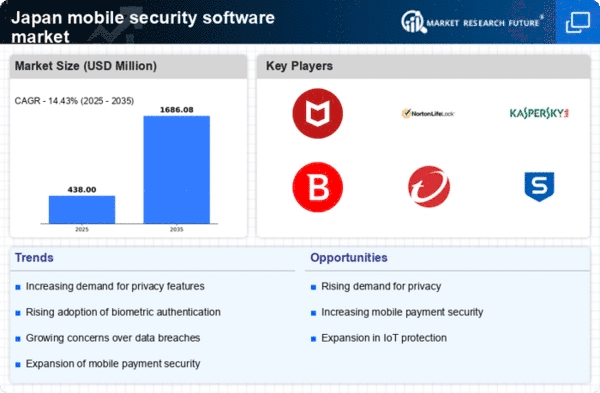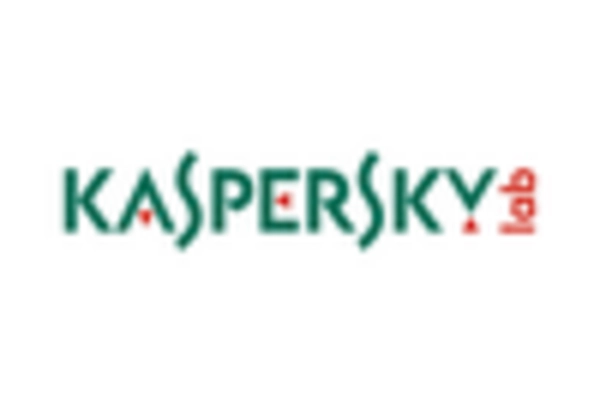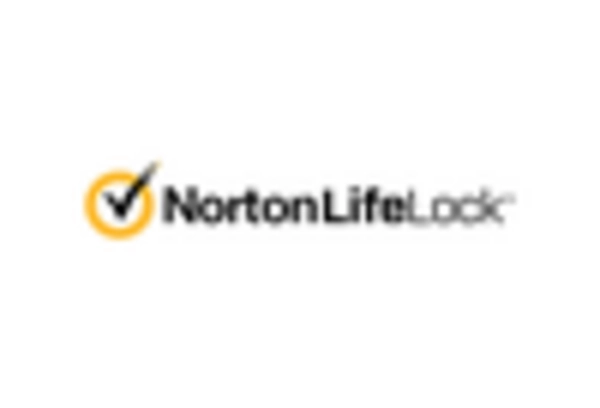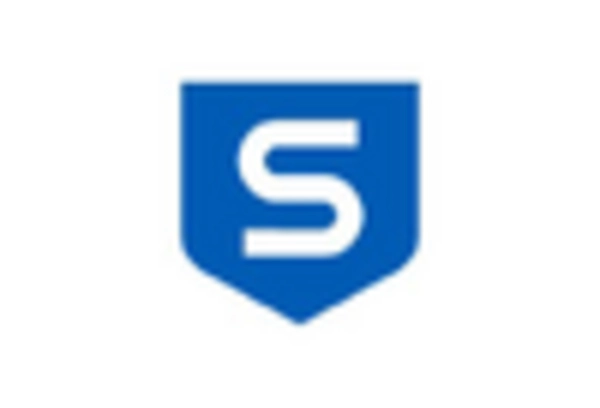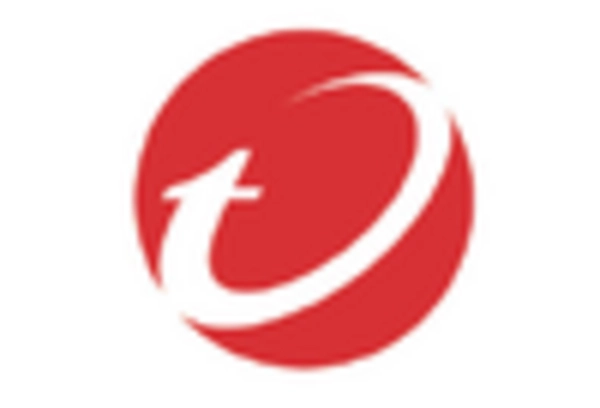Regulatory Landscape
The regulatory landscape in Japan is shaping the mobile security-software market as organizations strive to comply with stringent data protection laws. Recent regulations have mandated that businesses implement adequate security measures to protect consumer data, thereby increasing the demand for mobile security solutions. Companies are now required to demonstrate compliance with these regulations, which has led to a surge in investments in mobile security software. This trend is particularly pronounced in industries such as finance and healthcare, where data breaches can result in severe penalties. As organizations navigate this complex regulatory environment, the mobile security-software market is likely to see continued growth as compliance becomes a critical focus.
Rising Cyber Threats
The mobile security-software market in Japan is experiencing increased demand due to the rising frequency and sophistication of cyber threats. Reports indicate that cybercrime incidents have surged by over 30% in recent years, prompting businesses and individuals to seek robust security solutions. This trend is particularly evident in sectors such as finance and healthcare, where sensitive data is at risk. As a result, organizations are investing heavily in mobile security software to safeguard their assets and maintain customer trust. The urgency to protect against malware, phishing attacks, and data breaches is driving growth in the mobile security-software market. Stakeholders recognize the necessity of proactive measures to mitigate risks.
Technological Advancements
Technological advancements are driving innovation within the mobile security-software market in Japan. The integration of advanced technologies such as artificial intelligence and machine learning is enhancing the capabilities of security solutions. These technologies enable real-time threat detection and response, making mobile security software more effective against evolving cyber threats. As organizations seek to stay ahead of potential attacks, they are increasingly adopting solutions that leverage these advancements. The mobile security-software market is thus experiencing a transformation, with new products emerging that offer sophisticated features tailored to meet the demands of modern users. This trend suggests a competitive landscape where continuous improvement is essential for market players.
Mobile Device Proliferation
The rapid proliferation of mobile devices in Japan is significantly influencing the mobile security-software market. With over 80% of the population owning smartphones, the reliance on mobile technology for daily activities has escalated. This widespread adoption creates a larger attack surface for cybercriminals, thereby increasing the demand for effective security solutions. Businesses are compelled to implement mobile security software to protect their employees' devices and sensitive corporate data. Furthermore, the trend towards remote work has further amplified the need for comprehensive security measures, as employees access company resources from various locations. Consequently, the mobile security-software market is poised for substantial growth as organizations prioritize mobile device security.
Consumer Awareness and Education
Consumer awareness regarding mobile security threats is on the rise in Japan, which is positively impacting the mobile security-software market. As individuals become more informed about the risks associated with mobile usage, there is a growing demand for security solutions that can protect personal information. Educational campaigns and media coverage have played a crucial role in highlighting the importance of mobile security. This heightened awareness is leading consumers to seek out mobile security software that offers features such as anti-virus protection, secure browsing, and data encryption. As a result, the mobile security-software market is likely to expand as consumers prioritize their digital safety and invest in protective measures.


